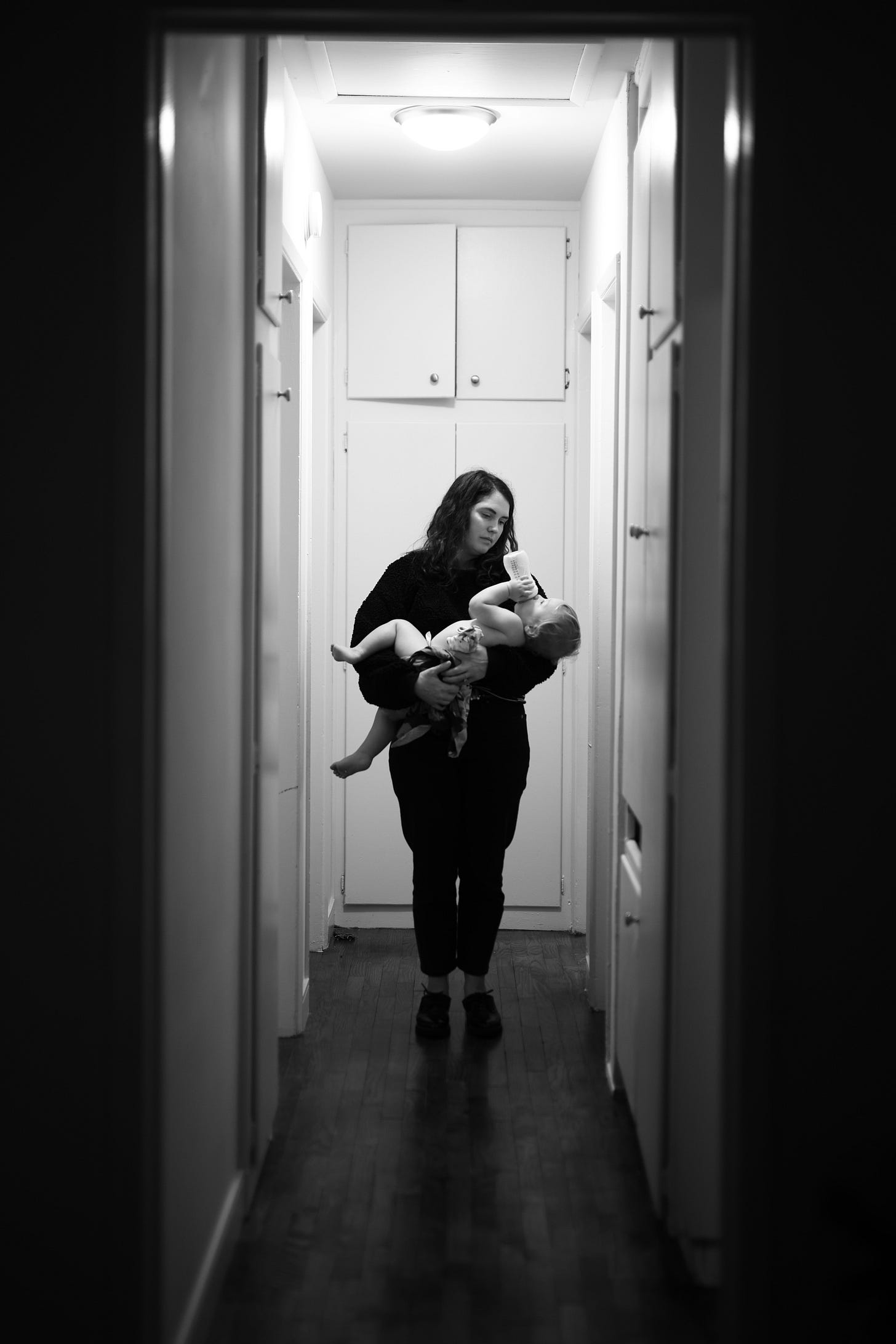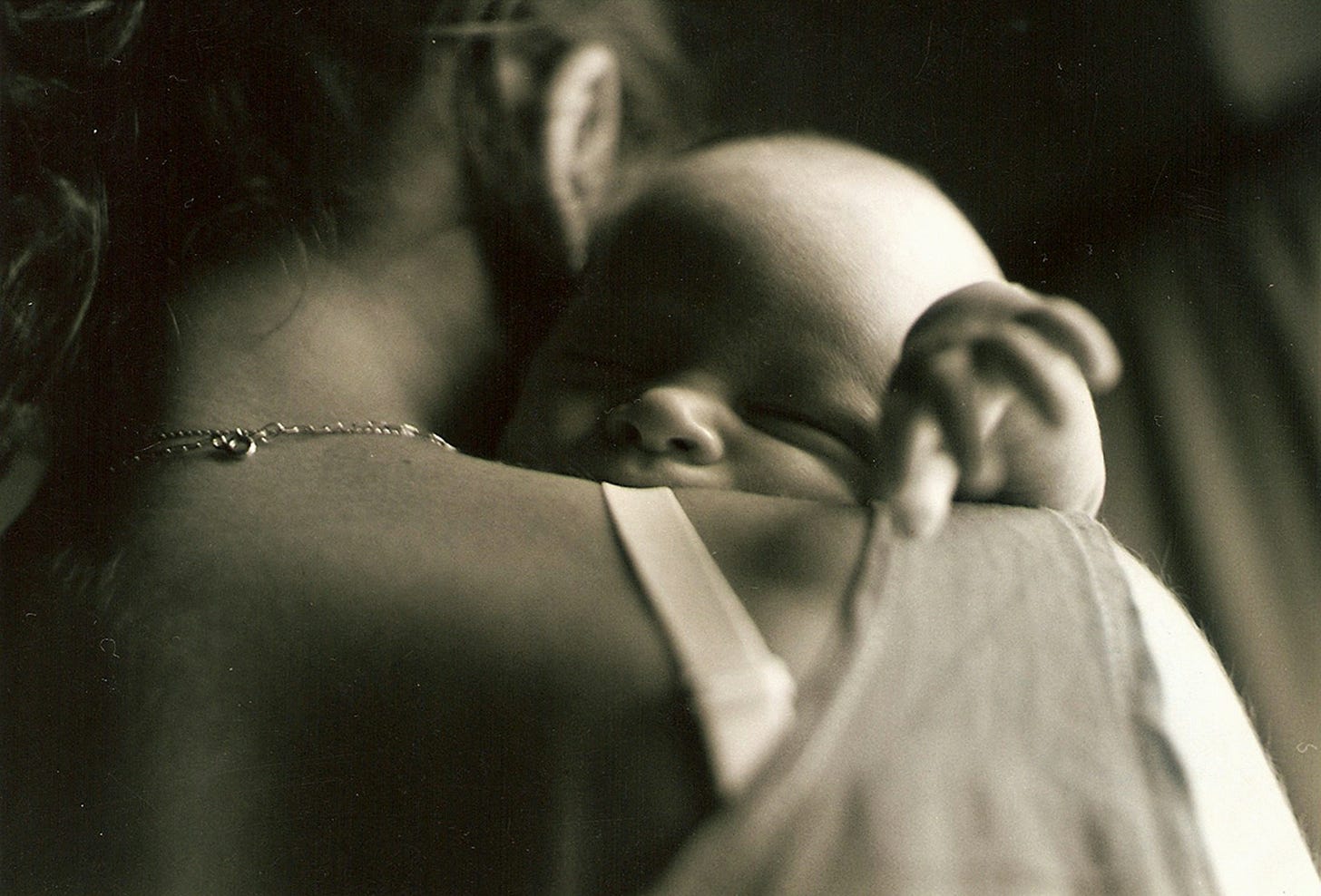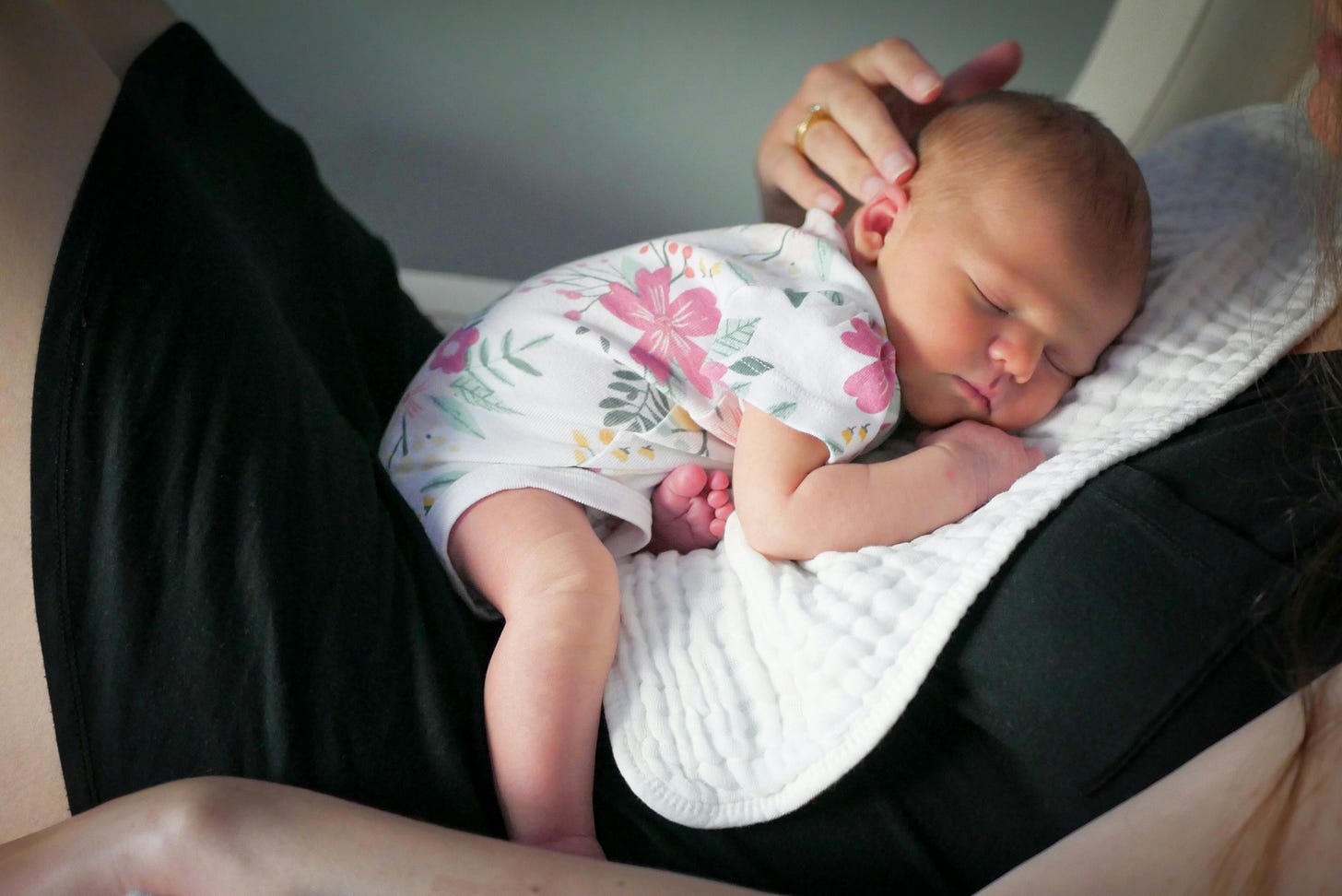I used to have a recurring anxiety dream that always ended the same way. My daughter is gone, absent, missing. Often, dream-me has known she was gone for a long time, but didn’t or couldn’t face it. Dream-me talks to other people, or does some important task, the whole time ignoring the feeling at the back of her mind—something is wrong. Someone is missing.
Within just a few days of my oldest daughter’s birth, these anxiety dreams began, made especially vivid by postpartum hormones. Decades later, I still remember the weirdest version.
I have celiac disease, which necessitates a gluten-free diet. I have dreams in which I eat great wonderful bites of real, chewy, crusty, gluten-filled bread—until fear and doom knot in my chest and I remember that it is poison. After my first daughter was born, I had one of those dreams, except the moment of realization was doubled: I had just eaten poison, and I was supposed to have a baby with me, and where was she?
K was a colicky baby, always wanting to be held, and her crying could quickly intensify into high-pitched screeching. I was at my most anxious, feeling that I must be doing something wrong. Her weight became a part of me. One day, when she was just a few months old, we hired a cleaning lady. For three hours, I held K face down in the crook of my arm (in “the colic hold”) and swung her back and forth while someone cleaned the whole house. I think the cleaning lady felt sorry for me.

There’s a certain weight to holding a baby or young toddler. The warmth of the child, the way her body leans into yours, an absolute trust in your strength. A harried mother with a colicky baby scarcely notices the weight until it is gone, until a father or a grandma or a babysitter lifts the baby from her. Then the lightness seems a new sensation, a relief to move freely after hours of holding and rocking.
After what seemed like a long, agonizing time and simultaneously the blink of an eye, K grew into an active toddler, too busy to be cuddled. She sat in my lap only at bedtime, when I read to her. In other ways, caring for her was all-consuming. She wanted me to play with her pretty much constantly—long, meandering pretend games, where I got to see her imagination grow. It didn’t feel like much of a loss, back then, when my needy baby went from living on my hip to directing our pretend play.
By the time my second daughter was born, I knew that the days of a small baby sleeping on my chest were limited. I was experienced now, not so worried about doing the “right thing” according to some baby book. I didn’t bother to try to get her to nap in her own crib or beat myself up about what I “should” be doing. I was too busy being grateful that A had survived her premature birth.
From the beginning, A seemed to crave physical contact even more than her sister did. It was understandable, after two months in a NICU. She napped on me, or on my husband or grandparents, but woke immediately if we put her down. When awake, she was happy enough to lay on a blanket and look around, but soon she wanted to be held again.
Even as she grew older, A snuggled up to me on the couch and automatically put her hand in mine while we walked (active K was more likely to take off running at the same age). Nearly every night after she grew too big for a crib, A inevitably showed up at our bedside in the middle of the night, wanting to sleep with us. Being older, more tired, and less willing to sit on a child’s bedroom floor at midnight, we usually obliged her. I can still feel the weight of a sleepy 3-year-old after I pulled her into bed on top of me, just before I rolled her over into the middle, where she fell asleep immediately and then spent the rest of the night digging her feet into our backs as leverage for some sort of sound-asleep gymnastics.

K is an adult now, and taller than I am. She still leans down to hug me, though less often than I would like. She humors her sentimental mom, though.
A is a teenager now, but she’ll still snuggle up to me on the couch, her head on my shoulder. She’s a hugger.
But even as I delight in my beautiful, interesting, nearly-grown-up children, I still remember the boneless surrender of a sleeping baby on my chest.
After A was born, I felt a certain conviction and satisfaction that our family was complete, that my childbearing time was finished. Only as they grew older did I notice an occasional sense of loss—a lightness that started out as a relief but sometimes feels more like an unmooring.
Holding other people’s babies feels familiar. Not newborns—newborns are delicate, wizened creatures, barely a feather in my arms. But a chubby 6-month-old, content to chew on her fist or grab for my hair—something in me just settles in, my feet firmly grounded, my hip supporting the baby like it was made to, my whole body engaged in the half-conscious sway of an experienced mother.
There’s a certain weight to a baby that’s unlike any other. And there is a certain way of being that I have left behind, almost without thought, as my babies have grown up. Perhaps that’s what the annoying old women meant when my children were little, when they spoke into my harried, barely-keeping-it-together day, “Treasure every moment.” Yeah, treasure this, lady.
But then I wake with a sense of doom from another dream spent denying that my child is gone, and I feel the weight of time and of inattention to its passing. I begin to understand what those women meant. I am happy, fulfilled, here in this season of my life. I treasure the amazing people that my babies have become. I am no longer immersed in the all-encompassing waters of early motherhood, when I fought as hard as I could just to stay afloat.
I have everything I could want, and I am more content in this season of life than I have ever been. But, sometimes, I look around and feel like something is missing.
And then I realize.
I have lost the baby weight.




